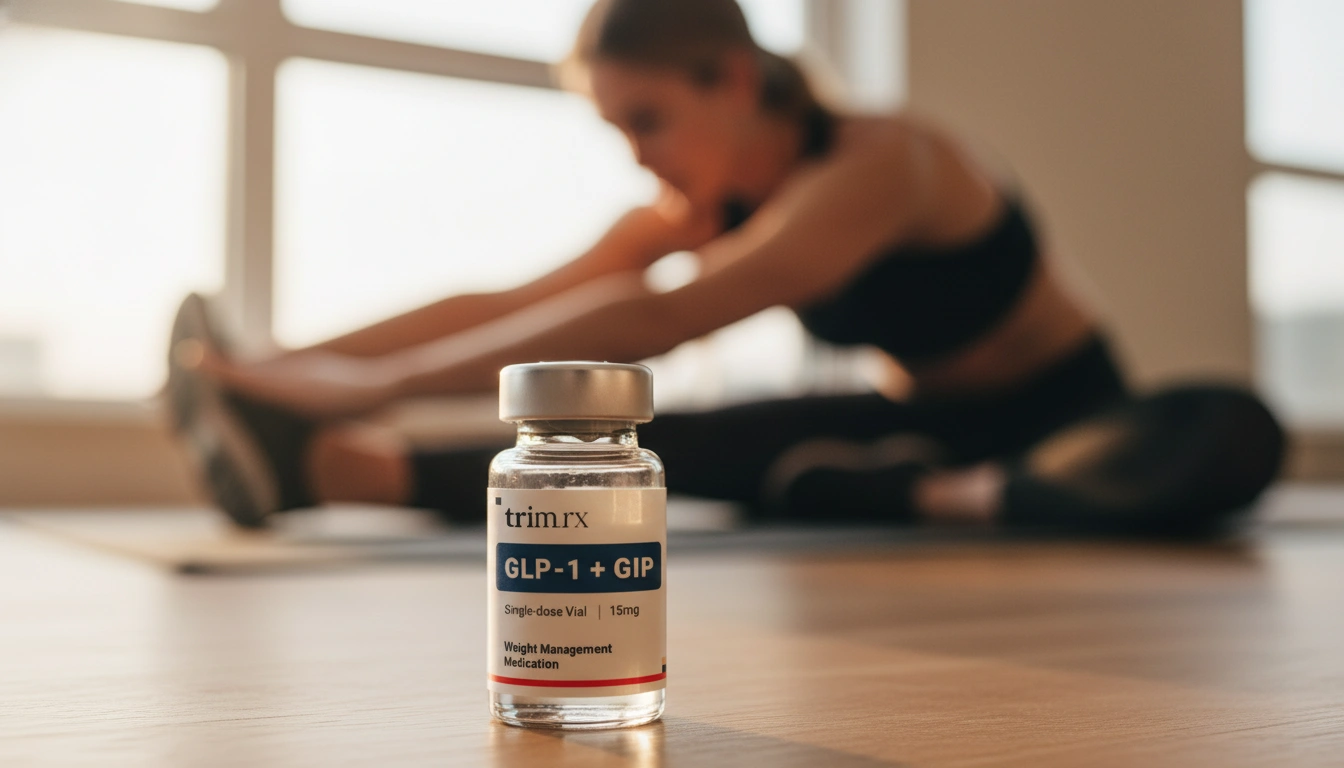Can GLP-1 Cause Depression? Understanding the Connection Between Weight Loss Medications and Mental Health

The relationship between weight loss and mental health has always been a subject of interest and debate, but recent advancements in medication have brought this topic to the forefront. Among these medications are GLP-1 receptor agonists (GLP-1 RAs), such as Semaglutide and Tirzepatide, which have gained significant attention for their effectiveness in managing obesity and type 2 diabetes. However, as more individuals turn to these medications for weight loss, questions about their psychological effects, particularly regarding depression and anxiety, have emerged. This blog post will explore whether GLP-1 medications can cause depression, the underlying mechanisms, and what this means for individuals considering these treatments.
Introduction
In 2021, the FDA approved Semaglutide (marketed as Wegovy) for chronic weight management, marking a significant milestone in obesity treatment. According to the Centers for Disease Control and Prevention (CDC), more than 42% of American adults are classified as obese, leading to a surge in demand for effective weight-loss therapies. While these medications have shown promising results in weight reduction and improving metabolic health, reports of adverse psychological effects, including depression and anxiety, have raised alarm bells among healthcare providers and patients alike.
But what is the true impact of GLP-1 medications on mental health? Are they potential culprits in exacerbating depressive symptoms, or do they offer benefits that can improve overall well-being? In this blog post, we aim to dissect the connection between GLP-1 receptor agonists and mental health, exploring both sides of the argument. By the end, we hope to provide clarity on the implications of using GLP-1 medications and empower readers to make informed decisions about their health.
We will delve into the following topics:
- Understanding GLP-1 Receptor Agonists: What they are and how they work.
- The Connection Between Weight Loss and Mental Health: Why weight loss can impact mood.
- Current Research on GLP-1 Medications and Mental Health: What studies say about the risks and benefits.
- Managing Mood While on GLP-1 Therapy: Tips and strategies to maintain mental well-being.
- Conclusion: Summarizing the key points and their implications.
Let’s embark on this exploration together as we seek to understand the multifaceted relationship between GLP-1 medications and mental health.
Understanding GLP-1 Receptor Agonists
GLP-1 receptor agonists are a class of medications that mimic the action of glucagon-like peptide-1 (GLP-1), a hormone that plays a crucial role in glucose metabolism. By stimulating insulin secretion and inhibiting glucagon release, GLP-1 RAs help regulate blood sugar levels. Additionally, these medications slow gastric emptying, leading to increased feelings of fullness, which can significantly aid in weight loss.
Mechanism of Action
- Insulin Secretion: GLP-1 RAs enhance the body’s insulin response to glucose, promoting better glycemic control.
- Appetite Regulation: By acting on the brain’s appetite centers, these medications can reduce hunger and caloric intake.
- Weight Loss: Clinical trials have demonstrated substantial weight loss in individuals taking GLP-1 RAs, often resulting in improved metabolic health.
These medications, including Semaglutide and Tirzepatide, have shown effectiveness in clinical trials, prompting their widespread use. However, their psychological effects are becoming a topic of increasing concern.
The Connection Between Weight Loss and Mental Health
Weight loss is often associated with improved self-esteem, enhanced quality of life, and better overall mental health. However, the journey to weight loss can also bring challenges that affect mental well-being.
Positive Effects of Weight Loss
- Improved Body Image: Many individuals experience a boost in self-esteem and confidence following weight loss.
- Enhanced Mobility: Weight reduction can improve physical health, enabling individuals to engage in activities they previously enjoyed.
- Better Health Outcomes: Achieving and maintaining a healthy weight often correlates with lower risks of chronic conditions, which can alleviate anxiety related to health issues.
Potential Negative Effects
Conversely, some individuals may face psychological challenges during their weight loss journey, particularly if expectations are not met or if they encounter setbacks.
- Body Dysmorphic Disorder: Rapid weight loss can exacerbate pre-existing body image issues, leading to unhealthy mental states.
- Pressure to Maintain Weight: The societal pressure to maintain weight loss can create anxiety and stress, potentially leading to depressive symptoms.
- Emotional Eating: Some individuals may struggle with emotional eating, which can lead to feelings of guilt and shame, further worsening mental health.
Understanding these dynamics is crucial when considering the impact of GLP-1 medications on mood and mental health.
Current Research on GLP-1 Medications and Mental Health
Research into the psychological effects of GLP-1 RAs is ongoing, with studies presenting mixed findings regarding their impact on mental health.
Positive Findings
- Antidepressant Effects: Some studies suggest that GLP-1 RAs may have a beneficial impact on mood, potentially alleviating symptoms of depression. The hormonal mechanisms at play could improve neurotransmitter function related to mood regulation.
- Weight Loss as a Confidence Booster: For many, the weight loss achieved through GLP-1 medications can lead to significant improvements in mental health, boosting confidence and self-worth.
Concerns and Risks
- Increased Risk of Depression: Some studies have indicated a potential association between GLP-1 medications and increased rates of depression and anxiety. For instance, a community-based cohort study found that individuals on GLP-1 RAs exhibited a higher incidence of major depressive disorder.
- Suicidal Ideation Reports: The FDA has received reports of suicidal thoughts or behavior associated with GLP-1 medications, prompting reviews and safety evaluations.
Conclusion of Current Research
While some individuals report improvements in mood and mental health, others experience adverse psychological effects. The complexity of this relationship underscores the need for healthcare providers to monitor mental health closely in patients using GLP-1 medications.
Managing Mood While on GLP-1 Therapy
For those considering or currently using GLP-1 medications, several strategies can help manage mood and mental well-being effectively.
Tips for Maintaining Mental Well-Being
- Regular Check-ins with Healthcare Providers: Keeping an open line of communication with healthcare providers can help identify any mood changes early.
- Balanced Nutrition: Ensuring adequate nutrient intake is crucial. Although GLP-1 medications may suppress appetite, it’s essential to meet caloric and nutritional needs to avoid mood disturbances.
- Engage in Physical Activity: Regular exercise can boost mood and mitigate anxiety. Finding enjoyable activities can make it easier to maintain a consistent routine.
- Support Systems: Building a support network of friends, family, or support groups can provide encouragement and understanding, making the weight loss journey more manageable.
Seeking Professional Help
If individuals experience significant mood changes or depressive symptoms while using GLP-1 medications, it’s essential to seek professional help. Mental health specialists can offer support, therapeutic options, and coping strategies tailored to individual needs.
Conclusion
The use of GLP-1 receptor agonists in managing obesity and type 2 diabetes has opened new doors for many individuals seeking effective weight loss solutions. However, the relationship between these medications and mental health is complex and multifaceted.
While GLP-1 medications can contribute positively to weight loss and overall health, they may also pose risks for depression and anxiety in some individuals. As we continue to gather more data through ongoing research, it is vital for healthcare providers and patients to remain vigilant about psychological well-being during treatment.
We encourage anyone considering GLP-1 medications to engage in thorough discussions with their healthcare providers, prioritizing both physical and mental health. Together, we can navigate the challenges of weight management while safeguarding mental well-being.
FAQ
Q: Can GLP-1 medications cause depression?
A: While some studies suggest a potential link between GLP-1 medications and increased rates of depression, others indicate possible antidepressant effects. More research is needed to fully understand the relationship.
Q: What should I do if I experience mood changes while on GLP-1 therapy?
A: It’s essential to communicate any mood changes or concerns with your healthcare provider. They can help evaluate the situation and provide support or alternative treatment options.
Q: Are there strategies to maintain mental well-being while using GLP-1 medications?
A: Yes, strategies such as regular check-ins with healthcare providers, maintaining a balanced diet, engaging in physical activity, and building support systems can help manage mood and mental well-being.
Q: How can weight loss affect mental health?
A: Weight loss can lead to improved self-esteem and better health outcomes for many individuals. However, it can also trigger negative emotions or exacerbate pre-existing issues, such as body dysmorphic disorder or anxiety.
Q: Should I stop taking GLP-1 medications if I feel depressed?
A: Do not stop taking any medication without consulting your healthcare provider. They can help assess your situation and determine the best course of action for your health and well-being.

Transforming Lives, One Step at a Time
Keep reading
Vitamin B12 and GLP-1 Medications: What to Know
GLP-1 medications can lower B12 absorption and intake; learn symptoms, food sources, supplement options, and how to monitor levels.
Semaglutide Injection Site Reactions: What To Know
Learn why semaglutide injections can cause redness, swelling or nodules, how to prevent and treat them, and when to seek medical care.
TrimRx vs Friday’s
Compare TrimRx and Friday’s telehealth GLP-1 weight-loss programs: pricing, medical support, coaching, delivery, and which fits your needs.



